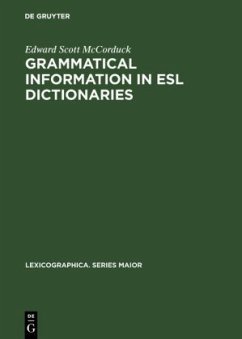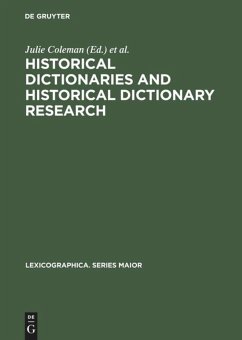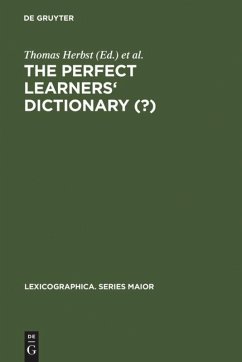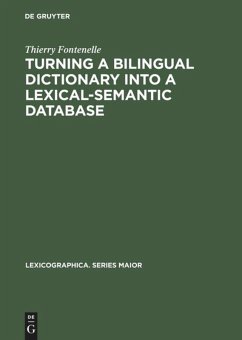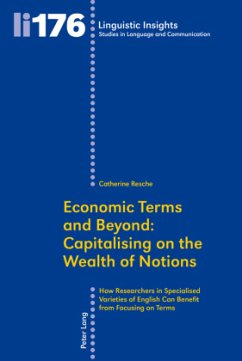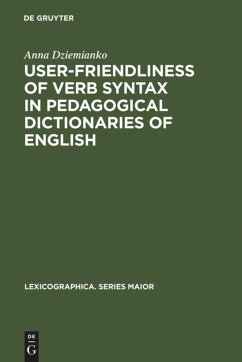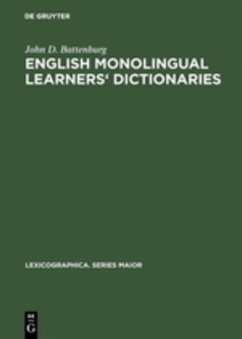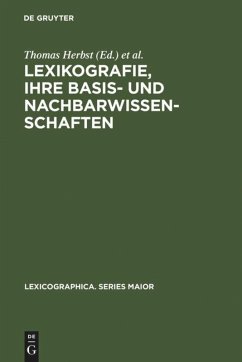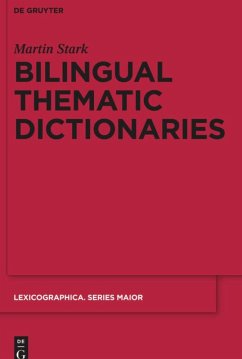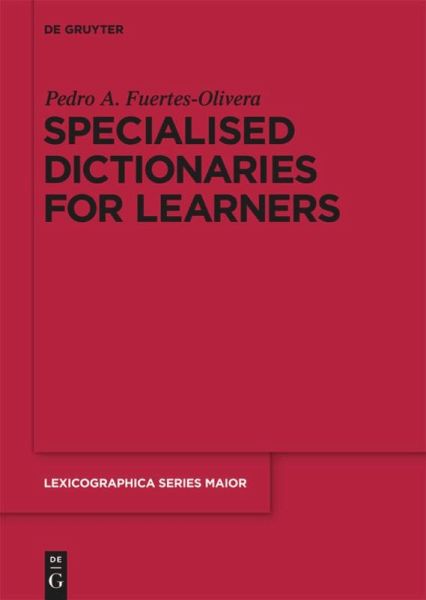
Specialised Dictionaries for Learners
Versandkostenfrei!
Versandfertig in 1-2 Wochen
117,36 €
inkl. MwSt.

PAYBACK Punkte
59 °P sammeln!
The need for constructing a lexicographical theory with a particular focus on specialised dictionaries for learners is well documented in recent publications. This will imply paying attention to, at least, four basic lexicographic categories: learners; the learner's situation; the learner's needs; dictionary assistance. In one or other way, these categories are analysed in this book, whose eleven chapters are grouped into three parts. Part 1 reflects on some of the main ideas defended by the function theory of lexicography, perhaps the theoretical framework that has paid more attention to spec...
The need for constructing a lexicographical theory with a particular focus on specialised dictionaries for learners is well documented in recent publications. This will imply paying attention to, at least, four basic lexicographic categories: learners; the learner's situation; the learner's needs; dictionary assistance. In one or other way, these categories are analysed in this book, whose eleven chapters are grouped into three parts. Part 1 reflects on some of the main ideas defended by the function theory of lexicography, perhaps the theoretical framework that has paid more attention to specialised lexicography. Part 2 presents some proposals that have already being explored in the field of general learner's dictionary and must be incorporated into specialised metalexicography: cultural aspects; figurative meaning; the inclusion of grammatical information; the use of corpora. Part 3 introduces the state of play regarding specialised dictionaries in China and offers some ideas for coping with the proliferation of terminological glossaries in Internet. The book also describes Enrique Alcaraz's academic achievements, together with some personal anecdotes, and a personal short tribute to his memory.



